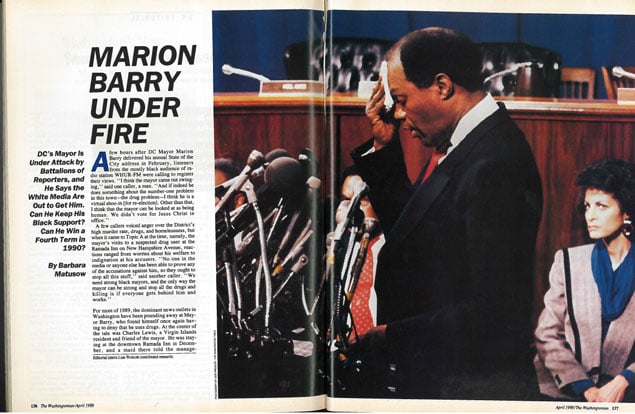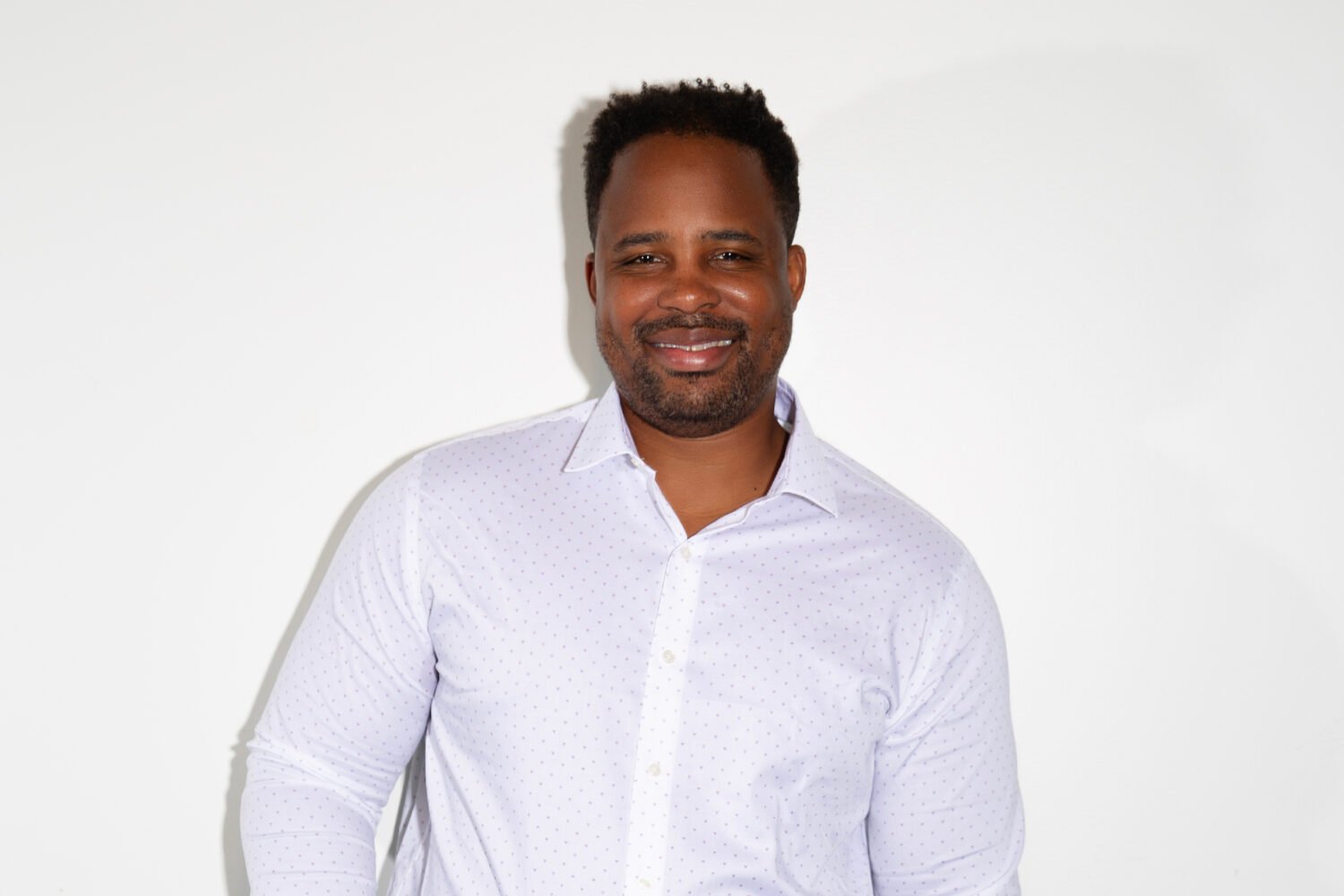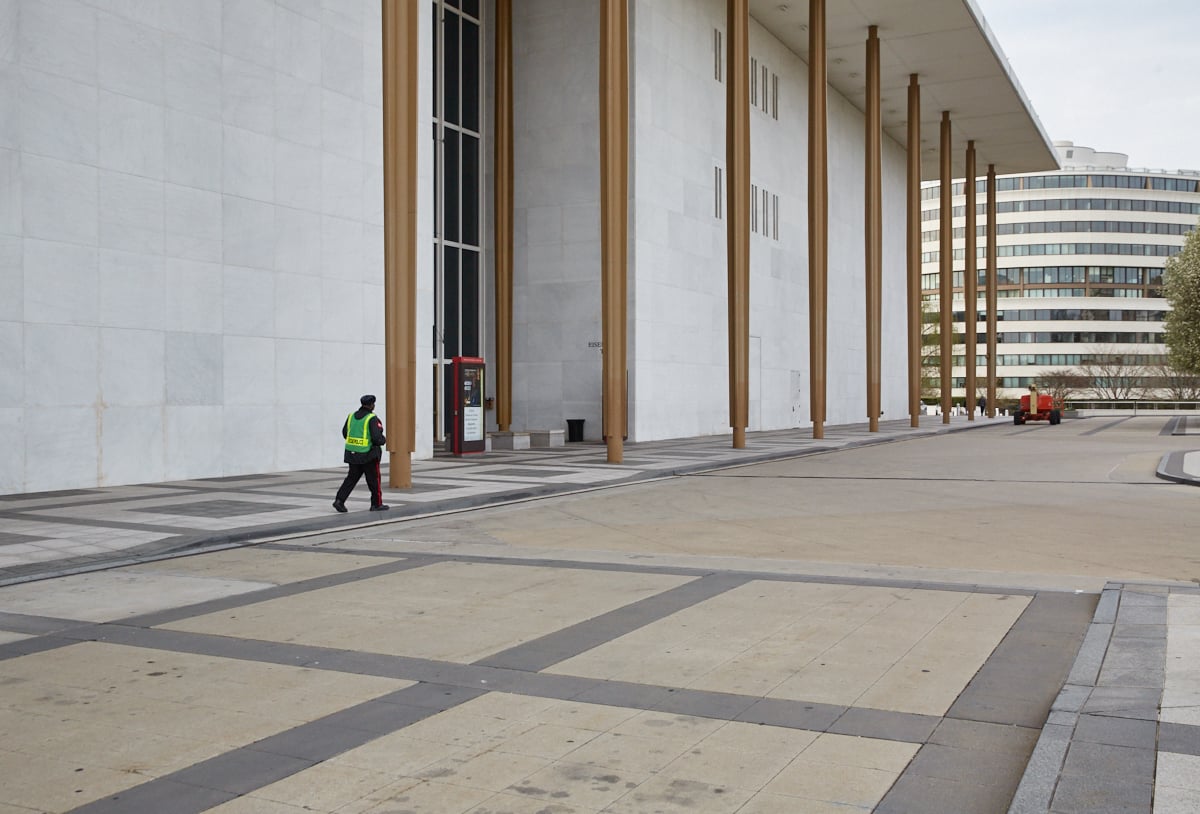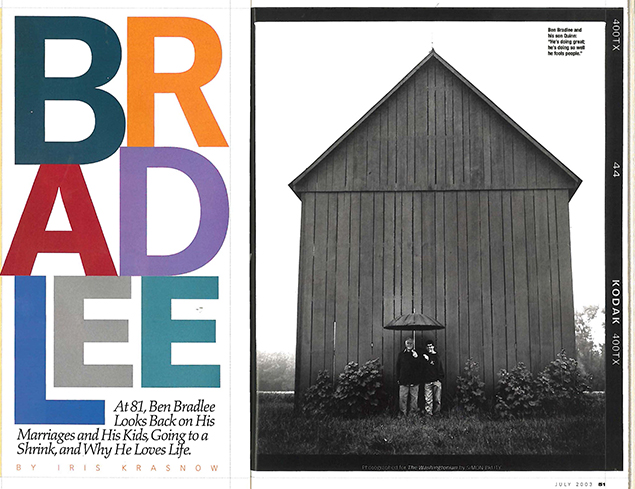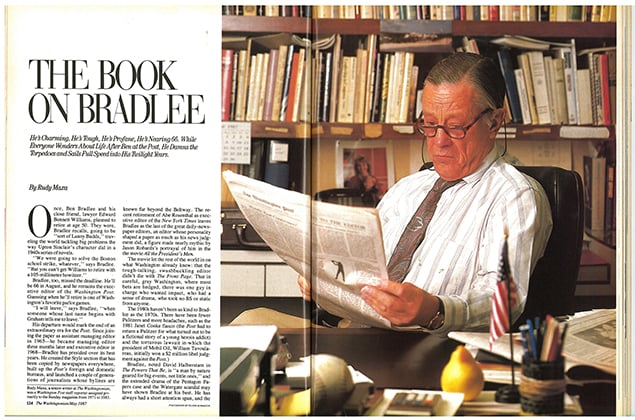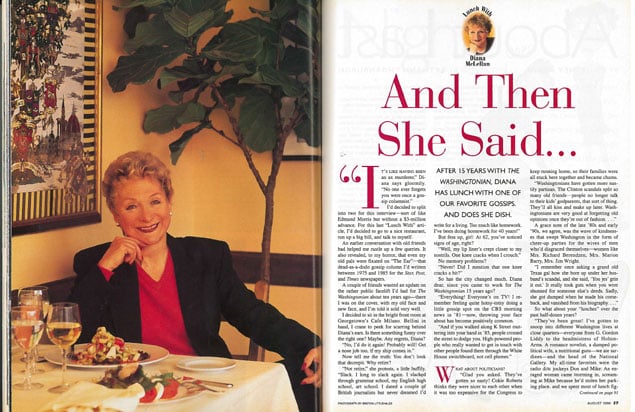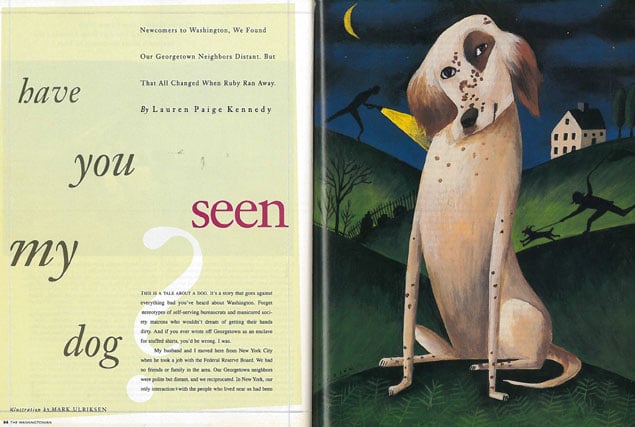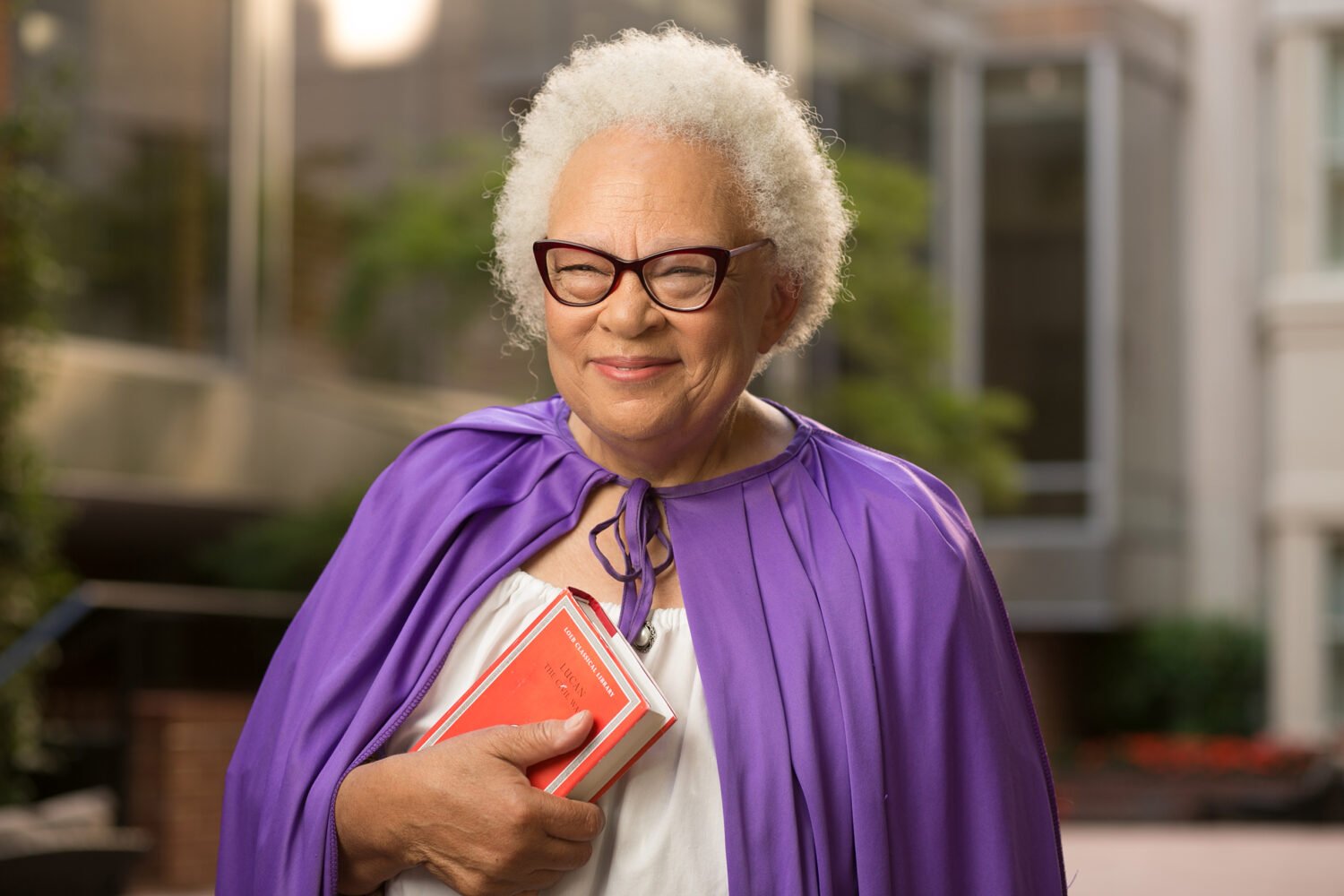A few hours after DC Mayor Marion Barry delivered his annual State of the City address in February, listeners from the mostly black audience of radio station WHUR-FM were calling to register their views. “I think the mayor came out swinging,” said one caller, a man. “And if indeed he does something about the number-one problem in this town-the drug problem-I think he is a virtual shoo-in [for re-election]. Other than that, I think that the mayor can be looked at as being human. We didn’t vote for Jesus Christ in office.”
A few callers voiced anger over the District’s high murder rate, drugs, and homelessness, but when it came to Topic A at the time, namely, the mayor’s visits to a suspected drug user at the Ramada Inn on New Hampshire Avenue, reactions ranged from worries about his welfare to indignation at his accusers. “No one in the media or anyone else has been able to prove any of the accusations against him, so they ought to stop all this stuff,” said another caller. “We need strong black mayors, and the only way the mayor can be strong and stop all the drugs and killing is if everyone gets behind him and works.”
• • •
For most of 1989, the dominant news outlets in Washington have been pounding away at Mayor Barry, who found himself once again having to deny that he uses drugs. At the center of the tale was Charles Lewis, a Virgin Islands resident and friend of the mayor. He was staying at the downtown Ramada Inn in December, and a maid there told the manage bas a saltier evaluation. “I don’t know what it’s going to take to convince the white media that the mayor’s personal life—his sex life and whether or not he does drugs—is not of importance to the black community. We want to know why the police can’t stop kids from killing each other and how our tax dollars are being spent.
“You know, we have lived through centuries of white political leadership that drank or practiced deviant behavior. We had a congressman jump in the Tidal Basin with a stripper. Others were chasing little boys in the bathroom. So why are we going to get upset if our mayor is chasing a go-go dancer?”
Nothing illustrates the chasm between the races in Washington better than attitudes toward Marion Barry. To most of white Washington, he has become “Mayor Barely,” the butt of jokes, the symbol of moral decay and incompetence. Lately, the accepted wisdom on most of the weekend TV talk shows is that the District of Columbia is the most corrupt city in the country. The white pundits, many of whom don’t live in the District, have called for the federal government to take away home rule, and have inaccurately said that the District is going bankrupt and basic services no longer are being delivered.
Gauging black sentiment is harder because opinion is far from uniform. Blacks generally agree that Barry’s persona plays best in the city’s poorest neighborhoods. In spite of his eighteen years as an elected official, his natty three-piece suits, and his prominence in national Democratic-party circles, the mayor can still come across as very much a street dude.
The fact that Barry is nobody’s puppet—he doesn’t even listen to his own advisers a lot of the time—is a big plus with supporters who find his flashy ways appealing. To them, it’s not a big deal when he stays out all night clubbing or turns up in the Bahamas with a woman who is not his wife. “Many people in the black community feel part of the benefits that go along with being the king is that the king has his pick of the damsels in the kingdom,” says Cathy Hughes. “And you know with [Barry’s former wife] Mary Treadwell going to jail and [convicted drug dealer] Karen Johnson going to jail, that just adds fuel to the fire. The fact that women loved him so much that they would sacrifice themselves rather than sell their man down the river only adds to his value as a male.”
It was the same with former Harlem Congressman Adam Clayton Powell, who was routinely photographed surrounded by bathing beauties on his boat in Bimini. He was re-elected by a 7-to-1 margin after Congress stripped him of office in 1967—a move later overturned by the Supreme Court. ”For people who have been oppressed, seeing [Powell] in Bimini, surrounded by gorgeous women, shows it’s possible to enjoy the good side of life,” says Hughes.
• • •
Barry’s flamboyance never sat well With the District’s black aristocracy—the well-bred, politically moderate preachers and teachers and Federal workers who live on upper 16th Street. They remember Barry as a gun-toting, dashikiclad rabble-rouser from the ’60s, and even after he changed his image, they winced at his strutting machismo and his unpolished, poor-boy diction.
In 1982, the “Dunbar crowd,” as the black gentry is known, backed Patricia Harris for mayor; she was a distinguished attorney who had served as Secretary of Housing and Urban Development in the Carter administration. But many among the emerging black professional class—the lawyers, doctors, and accountants went for Barry, who easily won the primary with 58 percent of the vote.
Today, some of these supporters are weary of Barry and the smell of scandal that envelops his administration—the more so since media outlets all over the country have picked up the story. ”People are calling me from Philadelphia, Cleveland, Atlanta, all over,” Jim Vance told a radio audience. “They’re laughing and making jokes. It’s embarrassing. I find myself having to defend Barry, which I do, but my defense stops after a certain point.”
“You know, black people are funny,” notes Channel 9 reporter Bruce Johnson. “They’ll tolerate a lot of embarrassment as long as it doesn’t go outside the family and the community and become public. ” Other ethnic groups operate by the same rules. There’s an old Yiddish expression: “Schande far die goyim,” which loosely translates, “For God’s sake, don’t make us look bad in front of the gentiles.”
Many middle-class blacks are especially upset by the mayor’s refusal to mend his ways at a time when strong leadership is needed to halt the city’s murderous drug epidemic. “What message does the perception of his association with cocaine users and possible use of that drug send at a time when the city’s drug crisis is choking the life out of our communities, destroying lives, and victimizing thousands of AfricanAmerican children?” asked a recent editorial in Black Networking News, a monthly newspaper aimed at young black professionals.
• • •
For all of their private criticism, few blacks of any class are willing to condemn Mayor Barry publicly. And those who do choose their words with care. “It’s still not kosher for blacks to criticize other blacks, especially publicly,” says the Reverend A. Knighton Stanley, minister of the People’s Congregational Church and a supporter of mayoral hopeful Sharon Pratt Dixon.
It’s especially difficult to criticize someone like Barry, who was at the forefront of the civil-rights movement. Far from blaming him, many of his constituents see him as another in a long line of persecuted black idols-men like Jack Johnson, Marcus Garvey, Joe Louis, Paul Robeson, Muhammad Ali, Adam Clayton Powell, Martin Luther King, and Malcolm X-who wound up jailed, impoverished, exiled, or murdered.
Even blacks who despise the mayor are reluctant to speak out, no matter what he does, for fear of playing into the hands of white racists. “There are a lot of people who remember southern congressmen like William Natcher and John McMillan who ran the District as their personal fiefdom,” Jim Vance says. ”They remember the struggle for political empowerment, and they see something larger than Marion Barry. Marion Barry is an issue, but he represents the struggle, something they have won. And the reason they get angry at the Post and the broadcast outlets who criticize him, at bottom, is the fear they have of losing those gains.”
If blacks are hesitant to denounce the mayor, so are most prominent whites—apart from those with political ambitions—for fear of appearing racist themselves. The principal exception was former US Attorney Joseph DiGenova, who publicly castigated the Barry administration for corruption. But he is gone now, and the new prosecutor, Jay Stephens, has deliberately kept a low profile. As a consequence, the only steady source of criticism appears to be coming from the news media.
• • •
The way many blacks see it, the white media are acting as spear-carriers for the white establishment, trying to discredit the District government and the mayor. Underlying the situation is the belief in the black community that blacks are steadily losing ground in America. Those fears are particularly acute in Washington, where blacks couldn’t vote for their own mayor until 1974. The attacks on Barry are seen as a barely disguised effort to regain political control for whites-the conspiracy theory known as “The Plan.”
”There are many people who believe there is a plan to retake the city for whites,” says Denise Yourse, editor of the Washington Afro-American, the oldest black paper in Washington. “Just look around you. We’re in a building at 11th and U. At one time, this entire quarter was populated by thriving black businesses. Now Metro’s Green Line is coming in, and most of these people have been driven out.”
“The Plan” seems to be widely accepted as a fact of life throughout the black community. Ernest White, the host of Crosstalk on WDCU, a predominantly black jazz radio station that attracts well-educated listeners—people who call in from their offices and car phones—says, “The feeling among my listeners is, ‘Yes, the plan is right on course.’ They look at the way the complexion of the community is changing, with blacks moving out and yuppies moving in. You can see it happening around Shaw, Adams Morgan, Logan Circle.”
”Why not?” says Spotlight editor Barry Murray of the conspiracy theory. “DC is a nice place to live, and now that you can’t even get away from bad folks in the suburbs, people are finding it’s more convenient to live in the city. That’s why you have all these attacks on Mayor Barry. It’s better to have a mayor that’s more controllable by the white establishment.”
• • •
Two months after the Ramada Inn episode, Mayor Marion Barry is sitting in the sanctuary of his huge office on the fifth floor of the District Building on Pennsylvania Avenue, sounding resigned but baffled by his inability to get the press to say anything good about him or his administration. Here is a man who all his life has been able to make things go his way, rising from the grinding poverty of his Mississippi childhood to get a master’s degree in chemistry, becoming the first national chairman of the Student Nonviolent Coordinating Committee.
Even as a black militant in Washington in the late ’60s, he managed to win a large measure of approval from people of both races. In 1970 the Post praised him as “DC’s man for all stormy seasons” for his ability to cool angry tempers during street disturbances. As mayor of the District of Columbia, he steadily converted the groups who initially opposed him-the ministers, the business community, the elderly, and the city’s poorest blacks.
But the white voters who helped put him in office have deserted him, largely, he thinks, because of the unrelenting criticism he gets in the media. “Among some people, I’ll never overcome it,” he says in a flat, tired voice. “They’re set, and they’ll never change their minds, even if I spent ten hours looking eyeball to eyeball with them and showed how they have benefited personally from my leadership.
“If you live in Ward 7, you see the streets being paved and the trash being picked up, and all the other things we’ve done. Plus [the people who live there) have a better sense that the newspapers are not as objective as people think. But I get the impression that in the white community, they depend a great deal on their image of me from what they get from the media, whether it’s television, radio, or the written press. ”
The Post’s coverage bothers him the most. He says he used to get the paper around 11:30 every night, but found he got so upset he couldn’t sleep. So he started reading it in the morning, but that aggravated him too much, too. Now, he says, he reads it “at some point in time” during the day.
Ironically, it was the Post that catapulted Marion Barry into the mayor’s seat. The paper’s endorsement, accompanied by a string of favorable editorials, translated into just enough votes for him to win a tight, three-way primary in 1978. The Post also endorsed him in 1982 and 1986.
But now, he believes, the Post is intent on driving him out of office. ”I’ve heard that some of the people at the Post say it’s time for me to go,” he says. “That’s what happened in ’76, ’77 when Walter Washington was mayor. I was closer to the editors, reporters, and editorial writers then. And I believe, although they’ll probably deny this, that there was a conscious feeling that Walter Washington had to go, that they were tired of his administration. And obviously they could not do much with his personal life, because Walter just didn’t do anything controversial. But if you look at the clips from ’76 on, almost every day there were three or four stories about his administration and how bad things were going.
“Of course, it helped me [when I ran against him] in ’78, because I used how he was bumbling and stumbling and couldn’t get things done. I saw the pattern then, and I see the pattern now. ”
Post editors respond that Barry is using the paper to divert attention from his own problems. “It’s natural for any politician under attack to make the media the issue,” says Post managing editor Leonard Downie. “We’re the biggest media institution in the community, so it’s natural to focus on us, but I must say that the reaction we’re getting indicates to me that our coverage has been fair. While .some accuse us of going overboard, others accuse us of not being vigorous enough in our scrutiny of the city government.”
• • •
After the Redskins won the Super Bowl in January 1988, Mayor Barry and members of his staff flew to Zachary, Louisiana, for a “Doug Williams Appreciation Day.” The mayor of Zachary, population 9,000, looked at the mayor’s sizable entourage and remarked a little enviously that he didn’t even have a press secretary. “Yes, but look at it this way,” said Barry’s press secretary John White. ”You don’t have the Washington Post, either.” “Hmm,” replied the mayor of Zachary. ”Good point.”
Over and over, the Post is singled out as the mayor’s chief adversary, although the weekly City Paper has been much harsher, and Bill Regardie, owner of Regardie ‘s magazine has publicly accused the mayor of abusing cocaine– he says he knows because he used to use it himself-and he has tried to promote a Barry recall effort. The Washington Times and the major television stations pulled out all the stops while the story was hot, too. Channel 4 and Channel 9 were following Barry almost round the clock. When Barry recently appeared before a grand jury, Channel 4 had four camera crews at the courthouse, staking out all four doorways.
Occasionally, the local stations have left the Post in the dust in their pursuit of Barry. Channel 9’s Mark Feldstein has been ahead from the start on the Karen Johnson story. He was the first to report that she told the grand jury she and the mayor used drugs together and that Barry’s friends paid her money to remain silent.
Channel 4 likewise has had its share of scoops, which it has promoted with a vengeance. The station covered the District’s feeble snow-removal effort in January 1987 as if it were the scandal of the century, and it flogged the DC ambulance services’ deficiencies so hard that the joke around town was that WRC should consider changing its call letters to 911.
The point can even be made that the television stations concentrate more on the negative aspects of the black community than the Post. Night after night, black bodies are shown being hauled away in bags, while a nonstop procession of black suspects are led off by police. But the stations come in for less criticism than the Post, in part because so many of those who present the news on television are black themselves. Besides, as Channel 9’s Bruce Johnson points out, ”The Post is still the paper that took down a President. Now a lot of black people think it wants to take down a mayor.”
In the minds of many blacks, the current political uproar boils down, fairly or unfairly, to a struggle between the two most powerful institutions in DC: the mayor, who symbolizes blacks’ hopes and fears, and the Post, which symbolizes the might of the white establishment.
This is an ironic position for the Post, a paper with a reputation for being liberal on race issues. It was one of the first newspapers in the country to throw its weight behind the civil-rights movement in the ’60s, and it has a reasonably good record for hiring minorities—better than most publications, including The Washingtonian.
At the upper echelons of the Post, publisher Donald Graham and managing editor Leonard Downie have deep roots in the District and a demonstrable concern for the city and its poorest residents. Graham served as a District policeman and Downie, who spent years as a metropolitan reporter and editor, specialized in exposing institutions and businesses that victimized poor blacks.
If they did not realize the depth of black resentment toward the Post, their consciousness was forcibly raised during the flap over the first issue of the revamped Post Sunday magazine. The September 1986 cover story was about a black rock star in New York who was accused of a murder in Washington. Inside, a column by Richard Cohen defended local jewelry merchants who wouldn’t let young black men inside their stores.
For the next thirteen weeks, community activists, led by Congressman Walter Fauntroy and Cathy Hughes, dumped thousands of copies of the Sunday magazines on the front steps of the Post, and hundreds of people turned out for ”Take It Back” rallies.
Both stunned and embarrassed, Graham, Downie, and executive editor Ben Bradlee invited dozens of black leaders in over a period of several months to listen to their grievances. The two messages they heard over and over: You don’t write anything positive about blacks, and you’re picking on the mayor and the city government.
The protests finally stopped after Don Graham, Ben Bradlee, and other top editors agreed to appear on Hughes’s radio show, and Bradlee wrote an unprecedented apology on the op-ed page, conceding the juxtaposition of the stories was insensitive.
Having had a taste of black outrage, Post editors cannot be eager to experience it again. But they believe their coverage of the mayor does not pose a problem. ”If our coverage only dwelled on problems involving the black community, it might, but I don’t think our coverage is unbalanced,” says Downie. “I think if you look at us over time you see balanced coverage of the black community, of black celebrities, and black public officials. My primary concern, whether the official is black or white is: Is the coverage accurate and fair? You always worry about that when you are covering public officials. We did it with Mandel, with Agnew, and we are doing it now with John Tower and Marion Barry.”
• • •
Journalism professor Ben Holman says he heard so many blacks complain about the Post that he decided to conduct a study, reading every story about the mayor and corruption the paper printed in 1987 and 1988. “My preliminary conclusion is that the coverage was not nearly as shabby as people think. Generally speaking, I think the stories were fair and balanced.”
If Holman is right, why do so many blacks still think the paper is out to get the mayor?
Judging from the effort and space devoted to the Ramada Inn story and the investigation into possible misuse of city funds in the Virgin Islands, the Post stories appear to go beyond anything the paper has done in the past. “I haven’t seen this many Post reporters working so hard since Watergate,” says Channel 4 reporter Pat Collins. “Everywhere I go I see little Post tracks. Where you would normally see one reporter, now you see two or three working on the same story.”
Post reporters say that Ben Bradlee, who is said to usually skim the Metro section, became heavily involved in the Ramada Inn story to the point of sitting in on a planning session with reporters and editors. And Don Graham could often be seen in the newsroom, talking about the mayor with reporters and editors. “It doesn’t mean they’re lining up against the mayor, but they recognize a good story when they see it,” says Tom Sherwood, who covers the mayor for the Post. “They were very hot on the Tower story, too.”
For Barry, it is hard not to take such intensive coverage personally, especially since he has heard Bradlee had a long meeting with Jesse Jackson in January, where according to a Jackson political adviser, he was urged to run for mayor. Bradlee denies he ever urged Jackson to run. “That’s not my role. I have talked with him about it, and so have 500 other people.”
The Post’s coverage may say more about the negative nature of American journalism than it does about the paper’s attitude toward the mayor. Although the Barry record over the past ten years includes accomplishments as well as failures, an examination of the Post’s files since 1978 would lead one to conclude that Washington really is “the worst-governed city in America,” as a recent cover story in the Washington Monthly charged.
News coverage falls into two general categories: routine daily stories with headlines like ”Barry Eyes $50 Million in Tax Increases” and “DC Panel at Odds on Jobless Compensation,” and longer, investigative stories which by their very nature are geared toward wrongdoing.
A small sample of Post exposes over the years gives the flavor: “Mayor Accused of Deception of $7 Million in US Funds”; “Minority Contracts: A Study in How the Program Went Awry”; “DC Youth Agency: Trouble for More Than a Year”; ”Willard Owner Had Said No to Free Room; Conflict of Interest With Barry Feared.”
All are hard-hitting, well-documented, legitimate newspaper stories. What’s missing from the bulging files are stories that highlight the positive side of the Barry administration-what’s been fixed or what’s working.
Stories like this would be especially valid in the District of Columbia, which is generally agreed to be the most complex city to govern in the country. Not only does DC have a large underclass requiring a broad array of costly services, but it has to perform both state and city functions and its bureaucracy was left in a shambles after 100 years of congressional rule.
When Barry took over in 1978, the District’s financial situation was a mess. Barry got a grip on the system, balancing the budget for eight straight years while making substantial reductions in the city’s long-term debt. He also cleaned up the books, and in 1984, the District got an ”A” rating from Standard & Poor’s, meaning that for the first time it could borrow money in the financial markets.
• • •
Many of Barry’s critics forget how terrible DC services used to be. The Barry government streamlined many operations, including trash collection, motor- vehicle applications, business permits, and the like.
In late 1986, a Post poll showed that a sizable majority were satisfied with the Barry government’s delivery of city services, ranging from a high of 82 percent for city trash collection to 59 percent for the performance of the police department. (The police figure probably would be much lower today.)
The Post has hammered away at DC scandals, although Washington seems no worse than other big cities when it comes to graft and corruption, and the dollar amounts are puny when measured against cities like New York. At the end of ten years, only two high Barry appointees have gone to jail—deputy mayors Ivanhoe Donaldson and Alphonse Hill. The eight others convicted were career civil servants.
Barry himself is seldom accused of lining his own pockets; his sins mainly have concerned his doing embarrassing things such as accepting junkets.
The areas in which Barry’s DC government is weakest—crime, drugs, and homelessness—are difficult, even intractable national problems. But exposing DC’ s failure to cope with them yields the kind of high-impact stories liked by editors. There’s little glory, or even much interest, in a piece that describes how the average wait for a driver’s license is much shorter than it was ten years ago at the District Building.
”I was talking to Tom Sherwood one day,” says Barry. “He said his philosophy is government is supposed to work right, so he is looking for things that don’t work. He said, ‘If I saw 35 traffic lights that were working right and one that wasn’t, I wonder about that one, and who gets the contract to repair it, and whether or not it’s a friend of yours, or whether it’s a minority contractor.’ I say that’s a fallacious argument. Government is not guaranteed to work right.”
• • •
Barry is also a victim of a phenomenon known in journalism as the running story. Once a person or an institution is perceived to be heading downhill, virtually everything that happens is seen through a negative lens. The mayor’s trip to a meeting of the National Conference of Black Mayors in Atlantic City in February offers a good example. Barry had been chairman of the organization for three years and had developed excellent relations with his fellow black mayors. Some of them offered to come to Washington to hold a news conference defending him. Instead, it was decided that they would give him a show of support in Atlantic City.
The mayor was supposed to go there for a reception on Friday night, but he delayed his trip until the next morning, when he was scheduled to take an early morning flight. Unhappily for him, the plane was canceled and he wound up arriving during the luncheon, where he received a standing ovation from the group. The mayor of Atlantic City, James Usry, delivered a strong statement saying that Barry should be considered innocent until proven guilty.
The fact that America’s black mayors were standing behind Barry at a time when his name was mud at home deserved some prominence. Instead, the story that played inside the Post’s Metro section was headlined ”Barry Defends Atlantic City Trip to Meet Black Mayors Amid Budget Problem.” The article, which implied that the mayor had no business taking time off at a resort while the DC budget was $30 million in the red, was sixteen paragraphs long. There was no mention of the endorsement by Barry’s peers until the fourteenth paragraph. The TV stations gave the story similar play, one sticking the knife in a little deeper by describing Atlantic City as a ”posh resort town.”
The writer of the Post piece—Tom Sherwood—is considered one of the best and most objective reporters at the District Building. “I don’t always like what Sherwood writes,” says DC Corporation Counsel Frederick Cooke, ”but I am more confident in the fact that he has done pretty good research. Some of the newer people will go off with stories that are half-baked, trying to make a name for themselves by savaging the mayor.”
Barry himself has a complicated relationship with Sherwood, even calling him at home late at night with tips and exclusives. A week after Sherwood followed the mayor to the Bahamas in 1987 and discovered him vacationing with a family friend called “Aunt Bettye,” Barry pretended to call Sherwood from Las Vegas, where the National Council of Mayors was meeting, hoping to fool the reporter into making a needless trip. “You’d have thought we were old friends after he got back from the Bahamas,” says Sherwood.
At other times, Barry has lashed out at Sherwood, twice complaining about him in televised interviews. ”Anytime somebody is here too long, they get jaded,” says Barry. ”If every day your job is to go down to city hall and find out what the Barry administration did wrong today, it’s just the same song, different stanza. I think Tom is getting cynical.”
• • •
From time to time, Mayor Barry flirts with the idea of ignoring the white media completely. Last January he released the negative results of his urine test to two black radio stations, WDCU and WHUR, a move that angered other reporters. He made another move toward the black press in February when he invited the editors of Washington’s six black newspapers to an off-the-record lunch in his office, promising them more exclusives.
He now sometimes refuses to take questions from the reporters who follow him around, giving them nothing but an odd, fixed smile that resembles a smirk. The day after he testified before the grand jury investigating the Ramada Inn episode, he wanted to cancel a scheduled press conference, knowing that nothing he said or did would result in a positive story. It took his advisers 24 hours to convince him to do it.
But however mad Barry gets at reporters, he can’t resist trying to win them over. Sometimes he tries the playful approach, doing “the dozens” -ghetto slang for verbal one-upmanship-with selected people, ragging Bruce Johnson, who is black, for not understanding a street term, or Tom Sherwood, who is white, about not knowing the city’s black wards. ”I’ll show up at a church in far Northeast, and he’ll say, ‘I guess you needed a map to get here,’ ” says Sherwood. “So I tell him, ‘I didn’t need a map or car or a driver, either. ‘ The joke is getting old, but it never fails to get a laugh.”
Barry has offered jobs to many of the reporters who have covered him, including Sherwood, Johnson, and Mike Davis, who covered him for the Washington Star. But where honey fails, Barry doesn’t hesitate to pour on the vinegar. One of his favorite tactics is to try to humiliate an unfriendly reporter at a press conference, which he packs with aides who laugh at his jokes. Reporters like Channel 9’s Mark Feldstein say it can be intimidating. When Barry takes a question from Feldstein, who was the first reporter to allege that the mayor bought cocaine from convicted drug dealer Karen Johnson, he’ll call him “Mark Feldman.” “Everyone laughs,” says Feldstein. “It takes the wind out of your sails.”
• • •
In many respects, the politician Marion Barry most resembles is George Wallace. Wallace also used reporters as foils, sometimes inciting the crowds against them. Now and then, one of his security guards would amble up to reporters and tell them not to worry, the governor had given instructions to protect them if things got out of hand.
Of the two men, Wallace was far more blatant about playing on racial fears, and his demagoguery was more egregious. But for both, life outside of elective office seems a terrible prospect. Barry loves being the center of attention, sweeping into a public gathering like a boxer, surrounded by security aides and hangers-on.
• • •
For a time Barry seemed to be getting bored with being mayor. He traveled frequently and devoted a lot of attention to the national organizations to which he belongs. In 1984, he threw himself into Jesse Jackson’s presidential campaign. He was selected to give the prime-time nominating speech for Jackson at the Democratic convention, and there was talk that he might be in line for a Cabinet-level position if Walter Mondale won. But Barry’s national image is now so battered that his horizons are limited to the District.
Lately he has been immersing himself in the nitty-gritty of government and has resumed a herculean schedule of public appearances, but friends and foes see the years of scandal chipping away at his ability to govern. “When you’re busy answering charges and trying to stay out of jail, it’s incredibly difficult to focus on things like public housing,” says Councilman John Wilson.
Barry’s ability to work for the District on Capitol Hill suffers as well. Because so many major news organizations have bureaus in Washington, his problems have become a national story. Usually his woes have been mentioned in tandem with reports of DC’s soaring murder rate, and the effect has been to portray the District as a shamefully corrupt city under siege.
”The members of Congress could be a little more reluctant when it comes to appropriations,” says Atlanta Congressman John Lewis, an old friend of Barry’s from his SNCC days. ”When it comes to giving the citizens more freedom, that could lessen, too. We all read the papers and watch TV. And as long as he’s being projected this way, combined with the unbelievable outburst of murders, we may be forced to look at certain programs with a different eye.”
• • •
But no amount of pressure from any source is likely to make Barry give up his office, say those who know him. “There’s no doubt in my mind that the mayor is going to run again,” says Annette Samuels, who served as Barry’s press spokesperson for six years. “He would never run away from a fight.” Adds editor Barry Murray: “His personality, his arrogance wouldn’t let him walk away without winning one more time. It’s just like trying to imagine Muhammad Ali retiring before meeting Joe Frazier again.”
Those who think Marion Barry won’t put up a good race forget what a wily politician he is. It was Barry who engineered the election of Dave Clarke, who is white, to be chairman of the DC City Council in 1983, knowing that Clarke posed less of a political threat than any of the other council members.
More recently, Barry has cast Clarke as a sort of white devil. In early January, when a mayoral recall looked like a possibility, Barry warned listeners on Cathy Hughes’s talk show that if he were removed from office, Clarke would become the interim mayor, giving him a leg up when the election was held in 120 days.
Lately, Barry has been concentrating on rallying his community base, just as he did in 1984 when he came under fire for his relationship with Karen Johnson. He’s been going to three or four churches every Sunday and attending one or more neighborhood functions every night.
But can he win a fourth term? “His hard-core supporters don’t vote in great numbers,” says WHUR reporter Derek McGinty, “but there are a lot of working- class folk who still believe in the mayor. They say, ‘Mayor Barry. You’ve provided us with services. We still like you.’ “
The elderly, who turn out in big numbers and are well provided for by the city, still love the mayor, too. And the downtown business community, which poured a lot of money into Barry’s coffers in the last election, doesn’t show any sign of defecting in large numbers. The other groups who supported the mayor in the last election—the ministers, gay organizations, Hispanics, and labor—are still in his corner, too, although some of them are less vocal in his defense than they used to be.
Beyond the special-interest groups, Barry has a base that any politician would envy. Given DC’s strong-mayor form of government, almost all city patronage jobs are his to dispense, and the city council’s powers to block his initiatives are limited. The DC Democratic party dances to his tune, too. But the Barry machine does not work like big-city political organizations in Philadelphia, Boston, or Chicago, where precinct captains and lieutenants get out the vote. “What he has are the people who work for the city—and there are almost 50,000 of them—plus the people who receive benefits,” explains Councilman Wilson. ”When the mayor wanted to mobilize a massive demonstration at the South African Embassy, he simply gave city employees the day off. You can pull a group together right quick that way. That’s his base. He doesn’t need a machine.”
• • •
In the long run, Barry’s biggest asset is the lack of a strong opponent. The one announced candidate, Councilman John Ray, is not considered a heavyweight, and he has acquired a reputation of being too accommodating to downtown business interests.
Sharon Pratt Dixon, a native Washingtonian and Democratic-party activist, could muster support among both whites and the city’s upper-income blacks, but she is considered too far removed from the streets to get elected. “She can’t relate in a heart-to-heart way in Anacostia the way Barry can,” says a black columnist.
Which leaves DC City Council chairman Dave Clarke. In spite of his dour personality, he was viewed as a credible contender for the mayor’s seat at a time when whites like Councilwoman Betty Ann Kane and school board member Karen Shook were getting elected to citywide posts with the help of black voters. But the city is much more racially polarized today. ”If you had asked me two years ago, I would have said Dave Clarke could win,” says Spotlight editor Murray. “He has come up in the black community and is recognized for his civil-rights background. He did all the things a white guy would need to get elected, almost as if he had read the book. But the sentiment is running against him now.”
A lot could happen between now and the September primary in 1990, including the possibility that US Attorney Jay Stephens might bring criminal charges against the mayor. One persistent rumor has it that the prosecutors have an incriminating videotape of the mayor in Lewis’s room, but Stephens, who is feared and respected around the District Building, is not talking. “The first words the mayor could hear out of Jay’s mouth are ‘You’re under arrest,’ “jokes one city official.
But past experience indicates that making criminal charges stick to Marion Barry is not easy. Joe DiGenova spent four years trying to put him away. At his instigation, the FBI kept the mayor’s office under constant surveillance; investigators went over his bank accounts, income-tax forms, and credit-card records with a microscope. At one point, they even subpoenaed two pairs of shoes Barry got from a contractor.
But DiGenova never turned up the kind of evidence that could stand up in court, and in January 1988 he resigned from the US attorney’s office and dropped back into private practice.
New allegations of drug use or financial improprieties could always surface in the media, but at this point it’s doubtful that more unsubstantiated charges would alienate the mayor’s die-hard supporters. If anything, a new media bombardment would probably only solidify his base.
Those who have watched Marion Barry over the years say his resilience should never be underestimated. “When I started covering the mayor in 1986 at the start of his third term, I said I was prepared to write the rebirth of the mayor or his obit,” says Tom Sherwood. “I’m still prepared to write either one. Both are great stories. We’ll have to see how it’s played out.”
This article appears in the April 1989 issue of Washingtonian.

